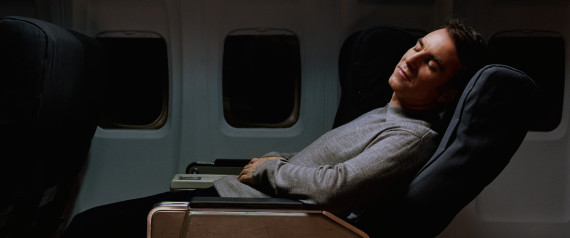A terrible case of jet lag and eight effective ways to fight it
The morning sun rays filtered through the windows. The birds embarked on their carefree singing, without sparing a thought for sleeping humans. I squirmed as the lorry engine at the bottom of my block sputtered to live.
I lay in bed and heaved a sign. The night had passed and I had barely less than 1.5 hours of sleep. My mind was wide awake, wondering how I would survive a full work day in less than 2 hours to come…
It was the most terrible case of jet lag I had ever experienced.
* * *
It all started 48 hours ago, in New York. I was due to return to Singapore on a Sunday at 00 15. This would give me sufficient time to get used to my bed. Unfortunately, the Cathay Pacific flight back to Singapore was delayed, and I ended up spending an extra night in Hong Kong. [That’s a story for another post.]
I arrived back in Singapore twelve hours later, at 12pm on a Sunday afternoon. In my attempts to fight the jet lag, I forced myself to stay awake throughout the afternoon. At 11pm, I crawled into the covers, hoping I could sleep soundly through the night.
I did fall asleep eventually, but woke up one and the half hours later. A sense of panic gripped me and I felt very disoriented. Where was I?

My room, and my very own bed felt foreign, I’m guessing because I had grown used to sleeping in hotel rooms for the last couple weeks. I started to feel very warm. Soon, all remnants of sleepiness left me and I was wide awake.
‘Perhaps some alcohol would help’, I thought. I had a few glasses of wine and went back to bed.
But it had the opposite effect from what I aimed to achieve. In fact, I was on the other spectrum of sleepy. I was edgy. ‘Perhaps I could call or text someone’, I thought to myself. I picked up my phone and typed the password to unlock it, but all I got was a notification that the password was incorrect. I started to freak out. ‘What was happening!’ Throughout the night, it was a repeated cycle. Me trying to sleep, then fidgeting and attempting to unlock my phone, failing and going back to bed again. It was crazy.
Needless to say, I felt like a zombie the next day, and there was a strain at the back of my head. But I struggled to keep awake… even on the train, when I felt my eyes closing while Instagramming a cup of coffee…
That very night, I went to sleep at 10pm and woke up at 6.30am. It’s not my normal sleeping time, but I felt so relieved that I could finally sleep.
Friends who had lived in the US gave all sorts of tips to help me fight the jet lag. Hope they’d be of use, should you ever have a similar experience.
* * *
1. Plan to sleep based on your flight arrival timing

If you’re taking a 15 hour flight and your flight is scheduled to land at night, sleep for the first half of the flight, and try to stay awake for the rest. That way, you can get some sleep once you touch down.
It may be difficult, especially since in-flight service typically starts 1 hour into the flight. That being said, try your best to stay awake based on the waking hours of your destination.
If your flight is due to land in the morning, do your best to stay awake for the rest of the day after you land.
2. DON’T Drink alcohol

If you’re the sort that feels drowsy from several glasses of red wine, drinking would probably not achieve the same effect if you’re jet lagged. It would make you feel even more awake.
As described by the anecdote earlier, Red wine + Jet lag = Crazy.
Attempts to unlock my phone in an inebriated state failed terribly. In the morning, I found random pictures and a video of my room in my phone.
Not cool. Needless to say, my conclusion is that Jet lag + Hangover = HELL.
3. Avoid caffeine!

Drinking coffee may help alleviate the pain of struggling to stay awake, but the best way to overcome it is to USE WILLPOWER. Avoid caffeine especially in the late afternoon. You want your body to crave sleep so much such that you can fall asleep the moment you close your eyes.
4. Don’t cave in
No, that 15 minute afternoon nap is not going to last for 15 minutes. The bed may look inviting, but it’s bad for you. Bad bad bad. Head out if you have to. Stay in Starbucks and read a book. Just don’t fall asleep on the comfy couches.
5. Familiarise yourself with your bed
This may seem like a minor detail, but one of the first few things to do when you get back is to get used to the bed. If you’ve been travelling for more than 3 weeks, it’s likely you’d have gotten used to the fluffy comforters and down pillows of the hotel. I like sleeping with thin blankets in Singapore, so it felt very different when I returned.
Take time to get used to your room in the darkness. When I first switched off the light, the room felt very foreign and I thought I was in a different place altogether.
6. Clear up whatever that’s troubling you, or try not to think about it
If you had a fight with someone or are worrying about something, chances are it’s going to worsen the jet lag even more.
Either your fight it out with that person, or let the frustration out somehow. If you’re the sort that needs to rant, make sure you give a friend a call before you sleep, instead of bottling it in.
7. Exercise!

When you’re feeling sleepy in the day, there’s only one thing left to do – exercise. Go for a walk, take as many steps as you can – you’ll feel better when you have a look at your Fitbit tracker.
Exercising not only generates endorphins which make you feel good, it’s also a healthy way to tire yourself out and make your body long for sleep.
8. Watch something that calms you down (or bores you a little)

In my university days, my Business Law textbook was always a good way to induce sleep. Now that I’m no longer a student, I find reading National Geographic a rather sleep-inducing activity. After viewing pictures after pictures of planets, animals and landscapes, it’s quite a foundation for nice, calming dreams.
* * *
The Travelling Squid’s Take
What’s the most effective way of fighting jet lag? Like fighting insomnia, the most essential step is not to be afraid of it. Don’t be afraid of sleeplessness. The more you think and worry about it, the more it’s going to keep you awake. The main fear that stems from sleeplessness is the question, ‘how would I survive tomorrow?’ Be it at work, at school or at a big presentation.
As I’ve learnt from my recent experiences, it would be fine in the end. You’ll probably be super tired the next day and have problems focusing, but other than that, you’ll be back in your bed at 10pm the same evening, fast asleep.
Do you have anything else to add? Please share your tips in the comments below.
Credits: A big thanks to my Friends G and J for tips, which eventually led to a good night’s rest.

Leave a Reply